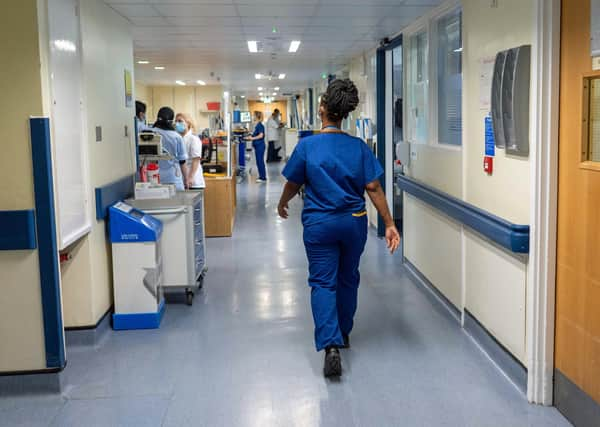The Walton Centre: all the key numbers for the NHS Trust in March


More than 1,000 patients were waiting for a key diagnostic test at the Walton Centre in March, figures show.
A health charity says poor NHS performance demonstrates the need for a workforce plan and greater funding across the health service.
Advertisement
Hide AdAdvertisement
Hide AdNHS England figures show at the Walton Centre, 1,160 patients were waiting for one of three standard tests, such as Computed Tomography, Magnetic Resonance Imaging, or Neurophysiology - Peripheral Neurophysiology at this time.
Of them, eight (1%) had been waiting for at least six weeks.
Across England, 1.6 million patients in England were waiting for a key diagnostic test in March – the same as in February.
Saoirse Mallorie, senior analyst at the King’s Fund, a health charity, said: "This is yet another month of worrying statistics that show people not getting the standard of care they need, and yet another month waiting for the oft-promised and long-overdue workforce plan, which must have funding to underpin it."
Advertisement
Hide AdAdvertisement
Hide Ad"There also needs to be a shift in focus from receiving care in hospitals to care closer to home. This involves investing properly in primary and community care services, as well as social care reform and full engagement with the voluntary sector," she added.
Some 260,308 urgent cancer referrals were made by GPs in England in March – but the proportion of cancer patients who saw a specialist within two weeks of being referred urgently by their GP fell from 86.1% in February to 83.9% in March, remaining below the 93% target.
Some 63.5% of cancer patients who had their first treatment in March after an urgent GP referral had waited less than two months, up from 58.2% in February.
Professor Pat Price, co-founder of the #CatchUpWithCancer campaign, said: “These quarterly NHS cancer figures are the worst on record. They show despite the heroic efforts of the front-line staff, cancer patients are likely to continue to die from waiting as well as from cancer itself."
Advertisement
Hide AdAdvertisement
Hide Ad"Without extra treatment capacity and a dedicated cancer plan we will continue to condemn cancer patients to avoidable delays and lives will be lost unnecessarily," she added.
Other figures show 12,878 patients were waiting for non-urgent elective operations or treatment at The Walton Centre NHS Foundation Trust at the end of March – up from 12,201 in February, and 10,144 in March last year.
The median waiting time from referral at an NHS Trust to treatment at the Walton Centre was nine weeks at the end of March – down from 10 weeks in February.
Nationally, 7.3 million people were waiting to start treatment at the end of March.
Advertisement
Hide AdAdvertisement
Hide AdA Department of Health and Social Care spokesperson said: “The NHS has seen and treated record numbers of cancer patients over the last two years and in March nearly 92% of patients started cancer treatment within one month."
"Cancer is being diagnosed at an earlier stage more often, with survival rates improving across almost all types of cancer and NHS England continues to actively support those trusts requiring the greatest help to cut hospital waiting lists, which is a top priority for government," they added.